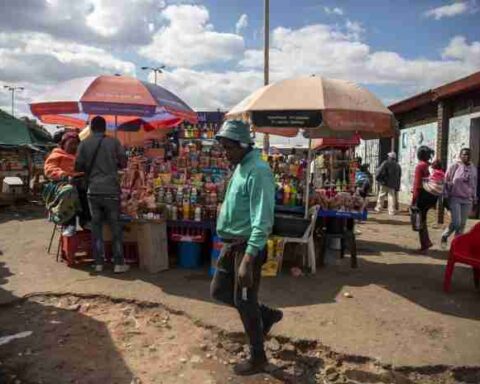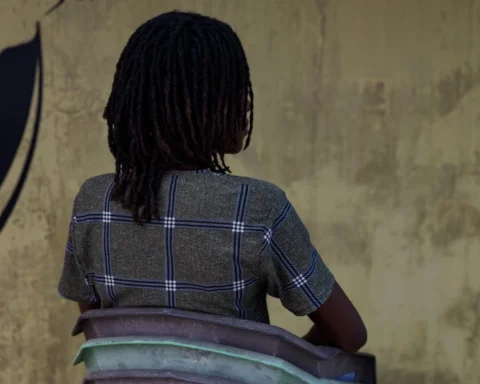Zimbabwe is due for its general elections in 2023 to choose the country’s leaders to run its affairs for five years until 2028. The elections are coming against the background of the disputed elections held in 2018 which the main opposition party.
The then Movement for Democratic Change Alliance led by Nelson Chamisa claimed massive rigging by the ruling party ZANU PF. The 2018 elections were conducted barely seven months after the military coup that deposed Robert Mugabe from power.
The change from Robert Mugabe to Emmerson Mnangagwa did not in any way change the electoral playing field which remained tilted in the favour of ZANU PF. Suffice to say, it was not very strategic for Zimbabwe to go into an election just after a military coup without addressing the fundamentals which govern the conduct of elections. Already, the military was deeply entrenched in the state, with key military personnel occupying very strategic positions across government departments, including the judiciary and of particular note the supposed independent electoral body, the Zimbabwe Electoral Commission (ZEC) which is discharged with the duties of conducting elections in Zimbabwe.
After Zimbabwe adopted a new constitution in 2013, the conditions for democratisation appeared to have been improving with a certain level of tolerance on the part of the state. However, the conditions for reform were not sustainable, the state bickered in aligning the new constitution with existing pieces of legislation which were not progressive. The situation became more compounded and authoritarian repression became more pronounced a few months after the coup and post the 2018 election and it has not abated since.
Disputed elections
The outcome of elections in Zimbabwe, at least since the rise of serious opposition, has been received with mixed feelings. Most African observer missions, including the Southern African Development Community (SADC) and the African Union (AU) declaring the outcome as credible much to the contrary conclusion by observer missions from outside the continent, including the European Union (EU).
In 2008, the Zimbabwe Electoral Commission (ZEC) took a whole month to announce the results of the presidential elections as it had emerged that the opposition candidate Morgan Tsvangirai had won the elections. In 2018, results were also disputed by the MDC Alliance, Mnangagwa won with 50.8% of the vote to Chamisa’s 44.3%.
The dispute spilt in the courts of law as the MDC Alliance leader Chamisa launched a constitutional court challenge to challenge the result of the elections, but lost, with the court declaring Emmerson Mnangagwa the winner.
The credibility of that particular election left many Zimbabweans in doubt and without adequate electoral reforms elections will remain rituals in Zimbabwe and will not see the transfer of power.
What has changed?
As the country is preparing byelections to be held in March this year and subsequently the harmonised elections in 2023 we need to ask very difficult questions if at all we have learnt any lessons from the history of stolen or rigged polls in Zimbabwe? Political parties are already campaigning to participate in the elections with little push for electoral reforms.
One would have thought that the demand for electoral reforms should be a non-negotiable and a pre-requisite before participation.
The confirmation of participation by the rebranded main opposition political party the Movement for Democratic Change Alliance into a new political outfit, the Citizens Coalition for Change raises a lot of questions. From the 2018 elections, the MDC Alliance were sending signals and declarations that they will not participate in future elections unless electoral reforms are undertaken.
However, their participation in the upcoming byelections without any meaningful reforms is a cause for concern. The party’s spokesperson Fadzayi Mahere was not convincing about the party’s demand for electoral reforms.
Responding to questions from journalists on why the party was contesting these elections without the implementation of reforms she has this to say: “The party is ready for the by-elections, but there is need to implement electoral reforms, which are not negotiable — to solve the governance crisis in Zimbabwe. We need to align our electoral laws to the Constitution and there is need for full disbandment of the partisan and militarised Zimbabwe Electoral Commission secretariat.”
The reality that it is now four years since the last elections without any meaningful reforms casts doubt over the credibility of the elections and looks like we are headed for another electoral dispute as the method has not changed.
Already, several players including opposition parties and civil society have raised red flags over the unevenness of the playing field a year before the elections. The proposals to introduce draconian pieces of legislation like the Private Voluntary Organisations (PVO Act), Patriotic Bill narrow whatever democratic space exists. The proposed pieces of legislation have the effect of creating conditions for a dictatorship.
Reform or perish?
In the final analysis, the basic tenets of democracy, therefore, include the right to vote, to belong to a party of one’s choice, to freedoms of expression, movement and association. It should be noted that the conduct of free and fair elections regularly is an indispensable ingredient of a democratic system. Ultimately, Zimbabwe needs an inclusive dialogue and a wide consensus on the conduct of the electoral process to ensure the legitimacy and credibility of elections.
The immediate challenge for democratic governance in the country is the creation of ‘an enabling environment’ that creates a climate of confidence in which reform can take place. We have seen how the ruling party has been emending the constitution willy nilly, stalling the realignment of laws, and how the credibility of the electoral process had declined. That confidence cannot be created and nurtured while repressive legislation is being introduced.
An important pillar for democratic governance will be a reformed electoral system. Zimbabwe needs an inclusive dialogue and a wide consensus on the conduct of the electoral process to ensure the legitimacy and credibility of elections. Therefore, there is a greater need for such a reform that would make the system transparent, fair and independent from political pressure. – Africa Blogging
Blessing Vava is a PhD fellow at the University of Johannesburg, South Africa. He holds an Honours and Masters of Arts degree from the University of the Witwatersrand. In his multi-faceted life Vava serves as the regional coordinator of Crisis in Zimbabwe Coalition






